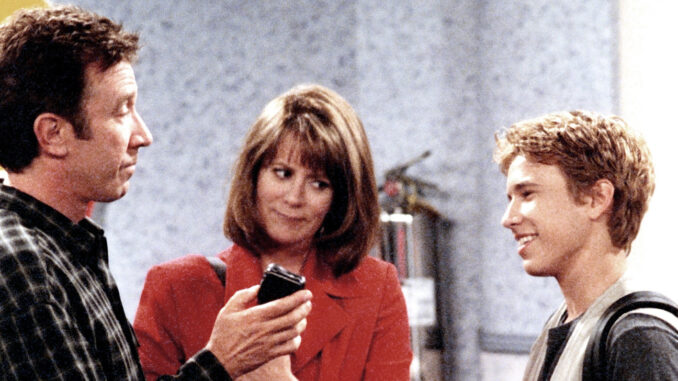
The Stalled Hammer: Patricia Richardson and the End of ‘Home Improvement’
The story of ‘Home Improvement,’ the smash-hit sitcom of the 1990s starring Tim Allen, is often told as a tale of comedic success and family values. However, behind the laughter and power tools lies a more complex narrative, one involving gender inequality and a pivotal decision that ultimately led to the show’s cancellation. Patricia Richardson, who played the ever-patient matriarch Jill Taylor, has publicly stated that ABC’s decision to end the series was directly linked to her request for equal pay.
Richardson’s account provides a stark reminder of the disparities that existed (and, arguably, still exist) in Hollywood. While Tim Allen enjoyed enormous success and commensurate compensation, Richardson, as his on-screen wife and a crucial element of the show’s dynamic, was not offered comparable terms. This disparity, she claims, became a sticking point during contract negotiations for a ninth season.
According to Richardson, Allen was offered a substantial sum to return for another season. In contrast, her offer was significantly lower. She believed that her contribution to the show’s success warranted equal footing in the negotiations. When she advocated for equal pay, ABC reportedly balked, ultimately deciding to cancel the show rather than meet her demands.
While ABC never explicitly confirmed Richardson’s claims, the circumstances surrounding the cancellation lend credence to her version of events. The network’s decision to walk away from a highly profitable and popular series, rather than address a perceived pay inequity, speaks volumes.
Several factors highlight the significance of Richardson’s stance:
- Her crucial role: Jill Taylor wasn’t merely a supporting character. She was a vital counterpoint to Tim Taylor’s antics, grounding the show in reality and providing relatable humor for a large segment of the audience.
- The broader context: Richardson’s fight for equal pay occurred within a larger societal conversation about gender equality in the workplace. Her experience reflects the challenges women face in various industries when seeking fair compensation.
- The legacy: The end of ‘Home Improvement’ serves as a cautionary tale, illustrating the potential consequences of challenging the status quo and advocating for fair treatment.
The details of the contract negotiations remain somewhat shrouded in secrecy, but Richardson’s account has sparked considerable debate and discussion about the value placed on female actors in Hollywood.
Ultimately, the story of ‘Home Improvement’ is more than just the on-screen narrative. It’s a story about power dynamics, financial priorities, and the challenges women face in achieving equal footing in the entertainment industry. Patricia Richardson’s willingness to speak out about her experience has undoubtedly contributed to a greater awareness of these issues, even if it came at the cost of a beloved television show. The question remains: was canceling a hit show a worthwhile price to avoid setting a precedent for equal pay?